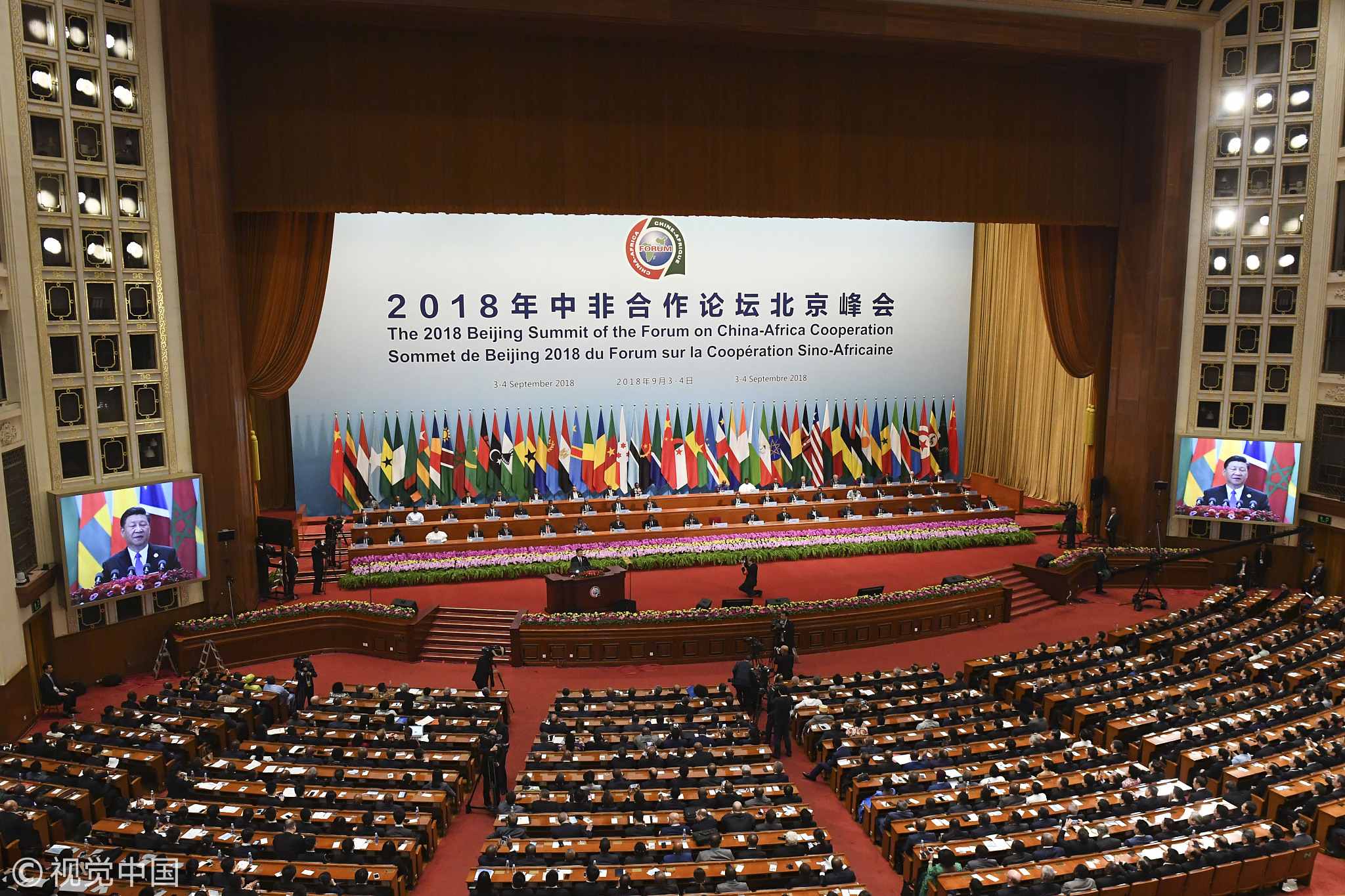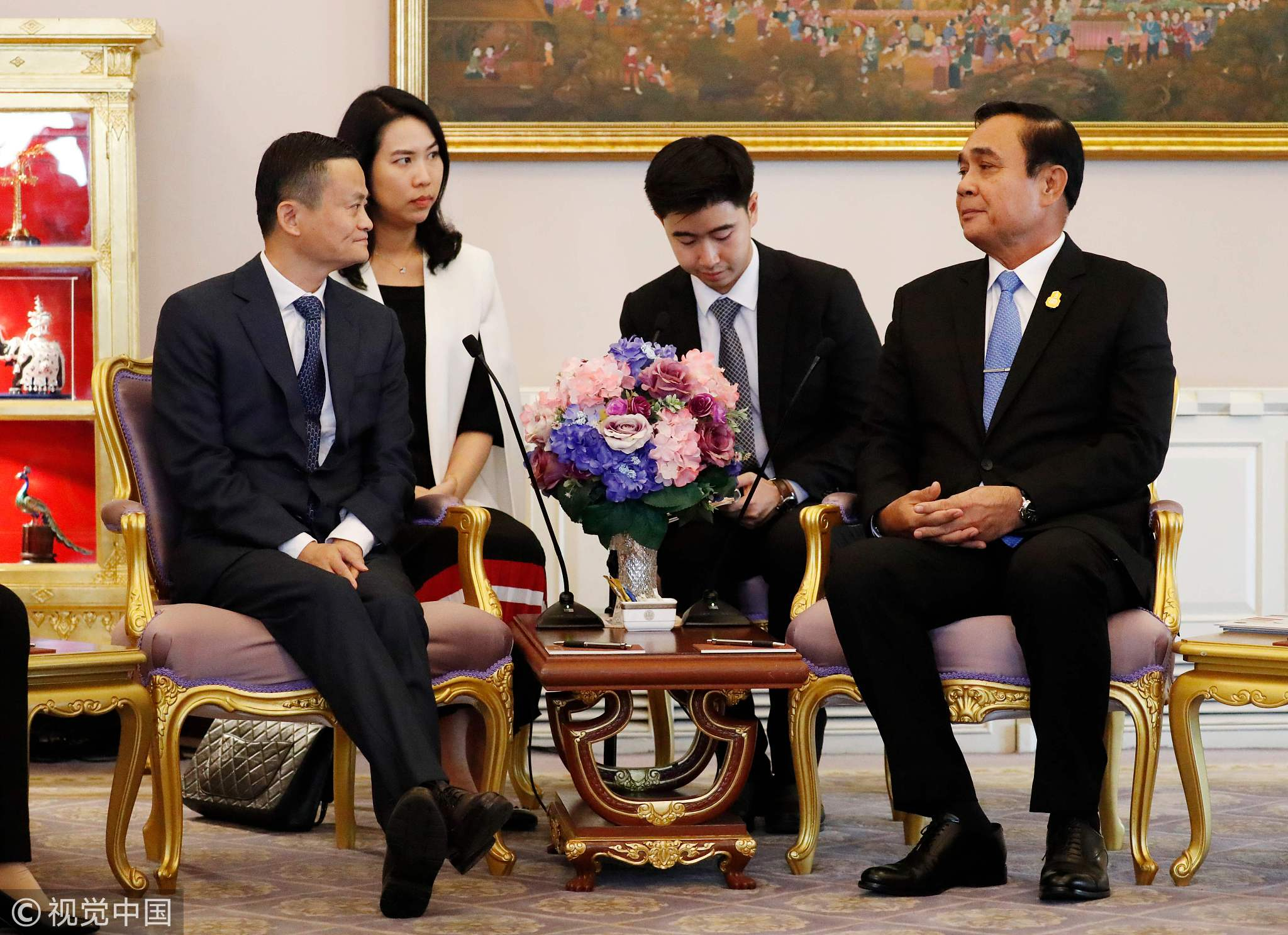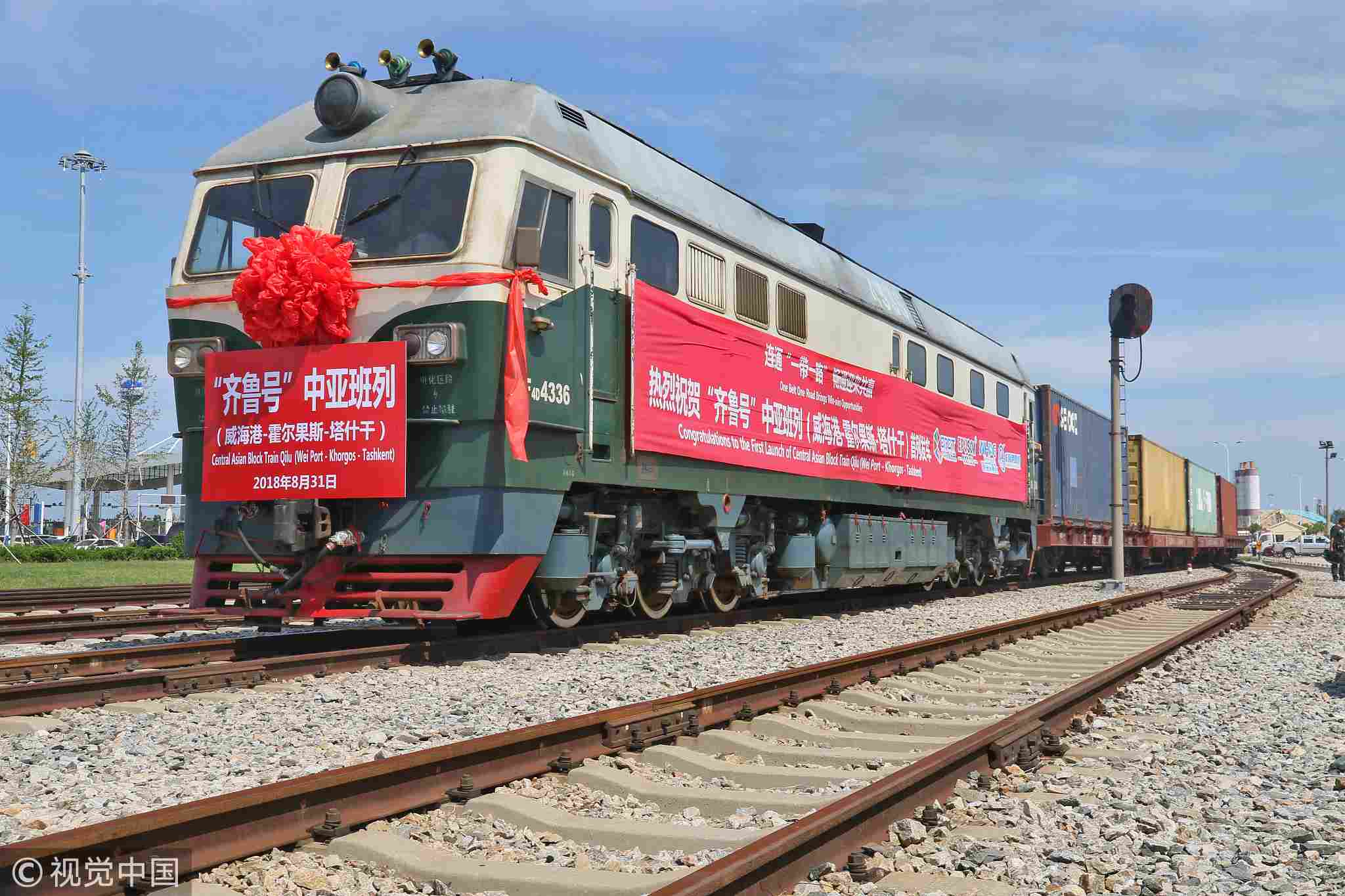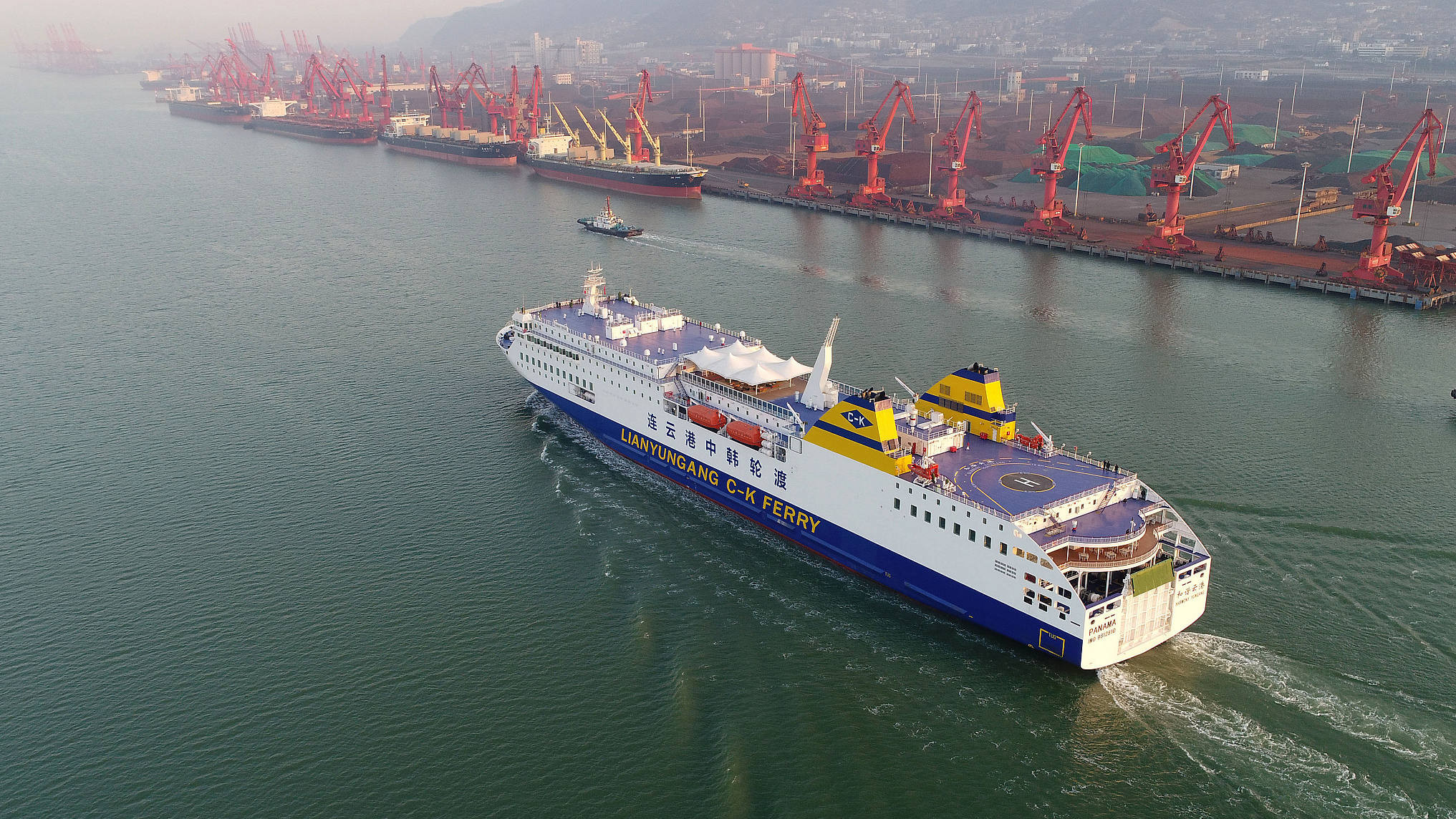Editor's Note: Zhao Minghao is a senior research fellow with the Charhar Institute and an assistant fellow at the Chongyang Institute for Financial Studies under Renmin University of China. The article reflects the author’s opinion, and not necessarily the views of CGTN.
The Belt and Road Initiative (BRI) is celebrating its fifth anniversary. Its outstanding achievements largely depend on policy coordination, which is a kind of “soft connectivity” that can effectively support infrastructure construction such as railways, highways and oil and gas pipelines. At present, 103 countries and international organizations have signed relevant agreements with the Chinese government under the BRI.
The BRI was also a keyword in the Forum on China-Africa Cooperation in Beijing. The forum was attended by more than 40 African heads of state and government. One of the important goals of this forum was to better integrate the BRI with the implementation of the African Union's Agenda 2063, the UN's 2030 Agenda for Sustainable Development and the development strategies of African nations.

The opening ceremony of the Forum on China-Africa Cooperation at the Great Hall of the People on Sept. 3, 2018, in Beijing, China ./VCG Photo
The opening ceremony of the Forum on China-Africa Cooperation at the Great Hall of the People on Sept. 3, 2018, in Beijing, China ./VCG Photo
The BRI adheres to market-oriented operation, while requiring the governments of various countries to create synergy among their respective development plans through in-depth cooperation. As the saying goes, “A single tree does not make a forest.” Over the past five years, the Chinese government has worked hard to promote policy coordination at various levels, aiming to uphold the core principles of the BRI, namely “mutual consultation, co-development and shared prosperity.”
In recent years, countries around the world have paid more attention to the development of the real economy and the improvement of infrastructures; and have been promoting industrialization and diversified foreign trade and economic cooperation. Hence, they have put forward a series of ambitious development plans, including Russia's “Eurasian Partnership,” Kazakhstan's “Bright Road” initiative and Turkey's “Middle Corridor” initiative. The United Nations and some regional organizations have also formulated cooperation plans around the goals of infrastructure connectivity and trade facilitation, such as the Master Plan on ASEAN Connectivity 2025 (MPAC 2025).
Over the past few years, China has vigorously promoted the BRI to connect with the above-mentioned plans and programs. In order to ensure the implementation of relevant agreements, China has also established various intergovernmental working mechanisms with Hungary, Laos, Pakistan, Kazakhstan, Czech Republic and other partner countries. For example, in order to promote the development of the China-Pakistan Economic Corridor, dozens of government departments from both countries and relevant local governments hold ad hoc consultations to solve various problems in a timely manner.

Models perform on stage wearing traditional outfits during the China Ancient Show of the CPEC Cultural Caravan Festival (CCCF) in Lahore, Pakistan. /VCG Photo
Models perform on stage wearing traditional outfits during the China Ancient Show of the CPEC Cultural Caravan Festival (CCCF) in Lahore, Pakistan. /VCG Photo
The Chinese government has also established exchange and cooperation mechanisms with the EU, ASEAN and relevant UN organizations. In July this year, the third meeting of the EU-China Connectivity Platform was held. Senior officials from China’s National Development and Reform Commission and the European Commission worked out action plans on the integration of the BRI with the Trans-European Transport Network and the development of green transport infrastructures.
Building a “Health Silk Road” is one of the important goals of the BRI. It’s aimed at improving the medical and healthcare services in countries under the initiative and bringing tangible benefits to ordinary people. To this end, the Chinese government has signed an agreement with the World Health Organization and carried out institutional cooperation covering the prevention and control of infectious diseases, training of medical personnel and hospital construction.
It is worth noting that policy coordination has been conducted through multilateralism. The Thai government hopes to build an “Eastern Economic Corridor” in the southeast coastal area of the country. The governments of China, Japan and Thailand are in close consultation to promote trilateral cooperation in this regard, helping Thailand to become an innovation-driven economy.

Alibaba founder Jack Ma (L) meets with Thailand's Prime Minister Prayuth Chan-ocha in Bangkok during a visit to the country to announce the group's investment in the Thai government's Eastern Economic Corridor (EEC) scheme, April 19, 2018. /VCG Photo
Alibaba founder Jack Ma (L) meets with Thailand's Prime Minister Prayuth Chan-ocha in Bangkok during a visit to the country to announce the group's investment in the Thai government's Eastern Economic Corridor (EEC) scheme, April 19, 2018. /VCG Photo
Of course, policy coordination requires high-quality policy advice. Think tanks, various research institutions affiliated with enterprises and universities have been playing an important role in this regard. Over the past few years, well-known think tanks in many countries have set up research teams focusing on issues involved in the BRI. The Chinese Academy of Social Sciences, Fudan University and China Center for Contemporary World Studies have proposed the establishment of a cooperative alliance of Belt and Road think tanks, attracting more than 300 Chinese and foreign think tanks to become its members. They have carried out joint research projects or jointly held seminars and submitted policy research reports to their governments.
There is no doubt that the development of the BRI still faces many policy challenges and problems in practice. Governments of various countries need to improve public services and create an enabling environment for business cooperation.

A train headed to Duisburg, Germany, departs from Weihai Port in China's Shandong Province, August 31, 2018. /VCG Photo
A train headed to Duisburg, Germany, departs from Weihai Port in China's Shandong Province, August 31, 2018. /VCG Photo
In addition, the BRI also needs to focus on sustainable financing and promote the participation of social capitals, in order to shield countries from heavy debt burden. There are a number of issues that think tanks need to study intensively, including the improvement of the governance model and dispute settlement mechanisms, building the “soft infrastructures” related to education and personnel training, and dealing with security risks imposed by terrorism and transnational organized crime.
In short, the policy coordination of the BRI is actually a process of capacity building, which requires the concerted efforts of governments, enterprises and think tanks.
If you want to contribute and have a specific expertise, please contact us at opinions@cgtn.com.






